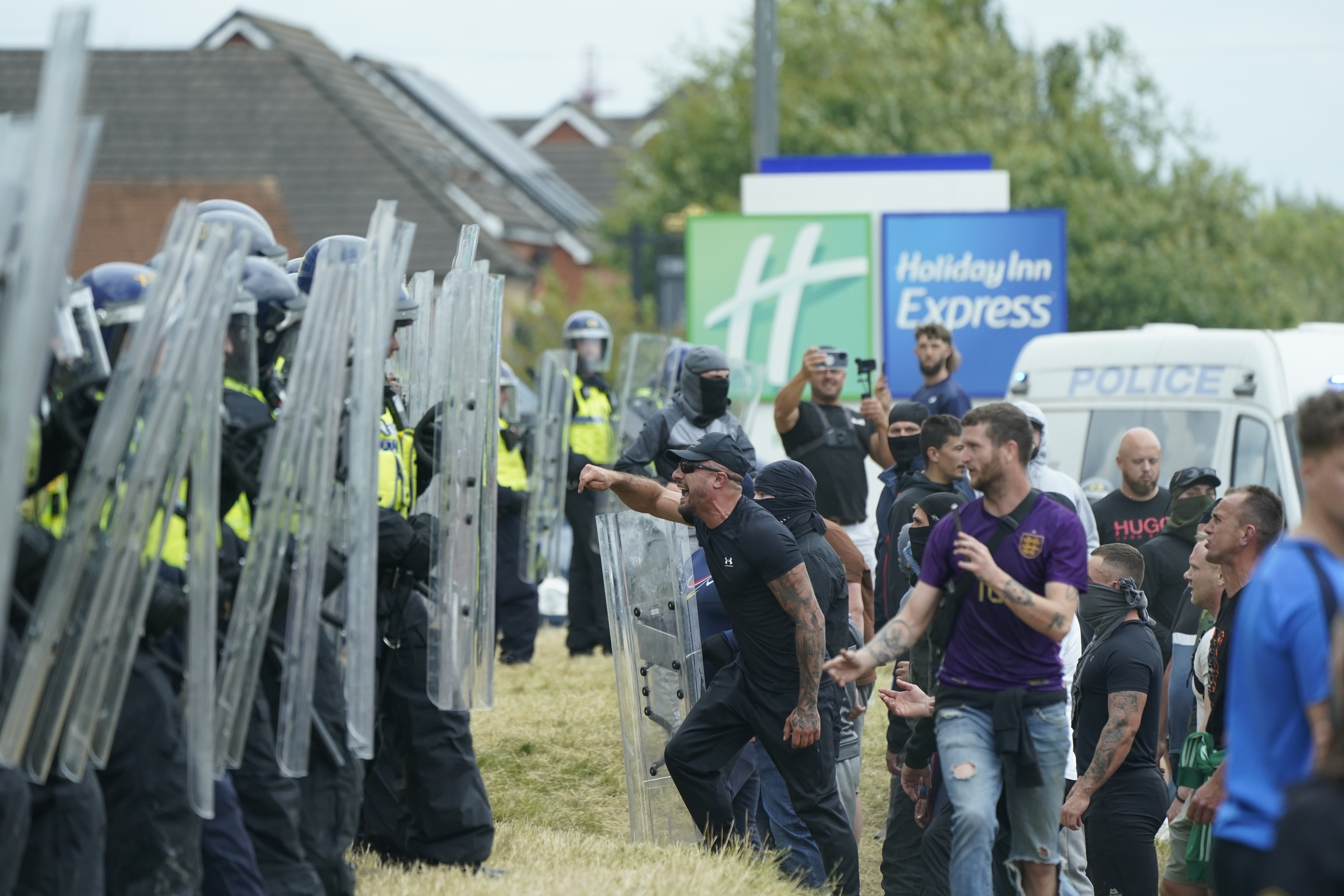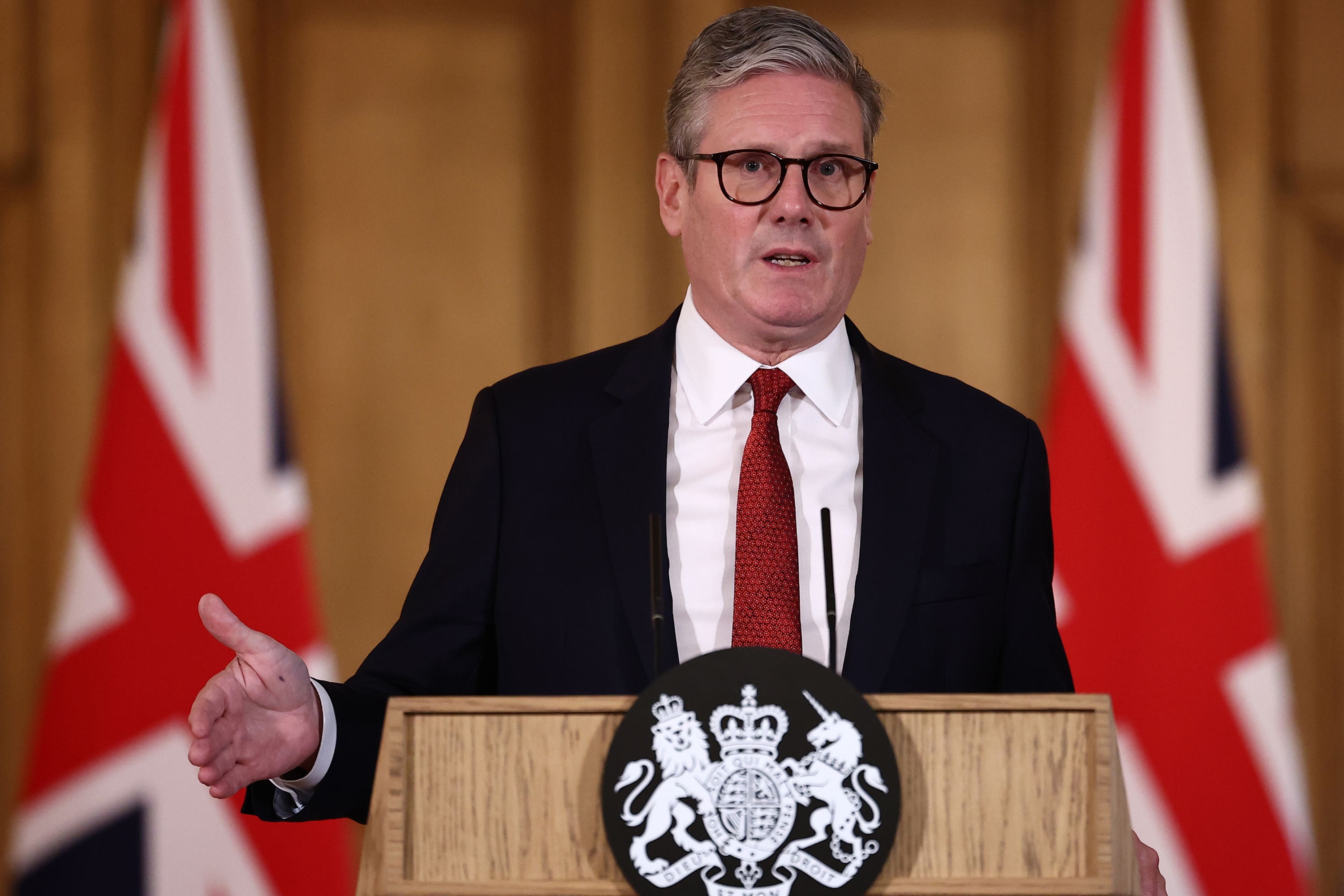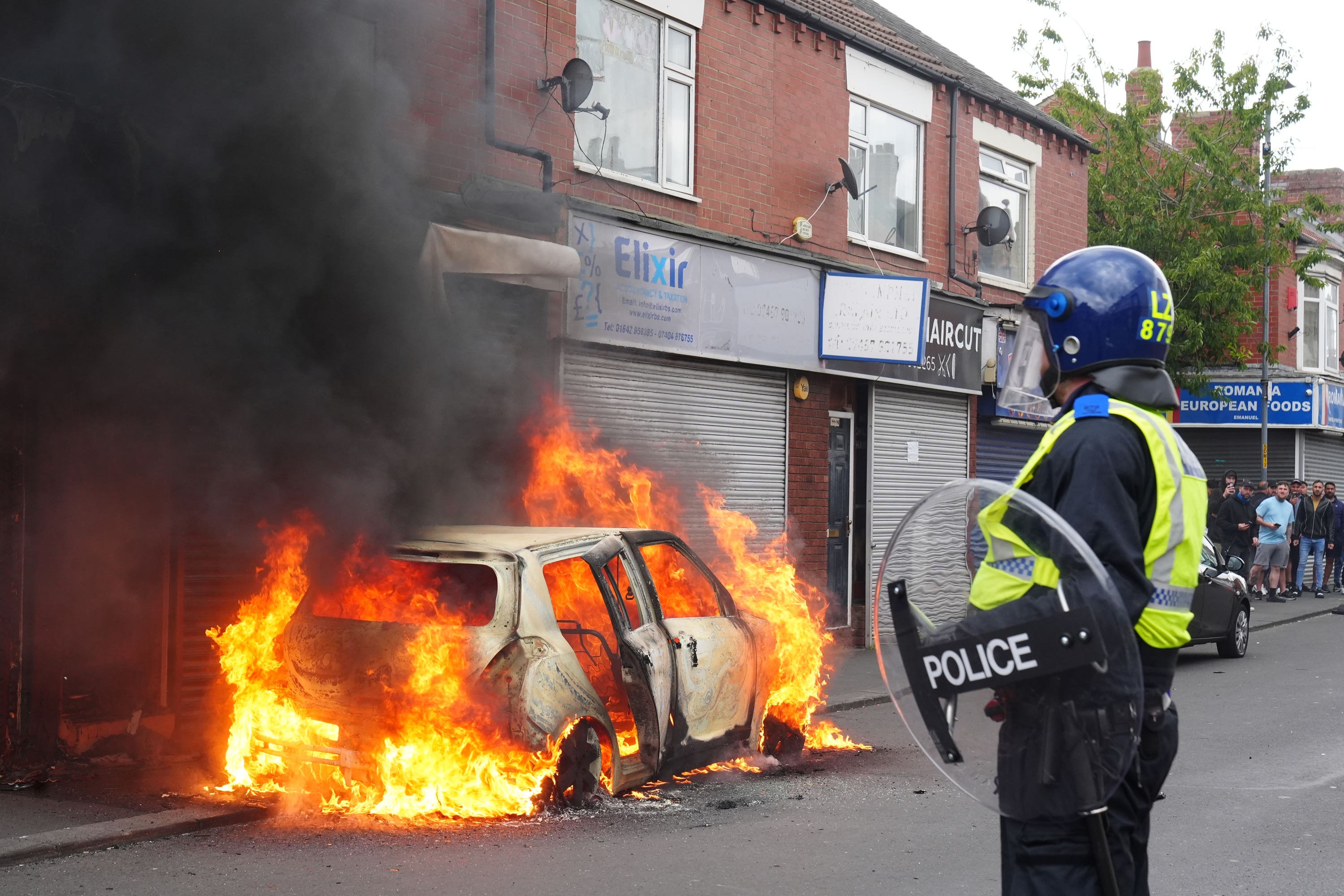UK riots: What happens next as hundreds arrested over disorder?
Far-right rioters have been warned to expect severe sentences
The UK was shaken by far-right riots across the country over the weekend and Sir Keir Starmer has sworn that those involved will “face the full force of the law”.
Rioters gathered in nearly 20 locations, with cities including Manchester, Bristol, Belfast and Leeds targeted.
Anti-Islamic and pro-Tommy Robinson chants could be heard on the streets, as large groups destroyed buildings and fought with police.
Rioters clashed with counter-protesters in several cities, while asylum seekers and hotels believed to be housing them were attacked.
One incident in Rotheram saw rioters set a Holiday Inn on fire and then barricade the exits. No injuries were reported.

Stephen Parkinson, director of public prosecutions, said: “The acts of violence seen across the country this weekend have involved criminality of the most serious kind.
“I am determined that we will act swiftly and robustly, giving the courts maximum ability to pass sentences that reflect what has occurred.”
For the latest updates on this story, follow The Independent’s live coverage
There have now been about 420 arrests, with No 10 holding an emergency Cobra meeting to coordinate the government’s response.
Ministers will look at the lessons learnt from the UK’s response to the 2011 riots, after which a new framework was drawn for dealing with civil unrest.
Here is how the UK’s criminal justice system could respond to the far-right riots in the coming weeks:
Open 24-hour courts
Following the 2011 riots, courts were asked to sit for 24 hours as the justice system worked to sentence more than 3,000 people arrested during the disorder. This established the additional courts protocol, which can now be activated in the wake of similar events, subject to the consent of the independent judiciary.
In an unprecedented move, the Crown Prosecution Service (CPS) did not observe the right to unconditional bail for unconvicted defendants under the Bail Act 1976. It is understood this was justified by the need to prevent further disorder.
Sir Keir Starmer was director of public prosecutions at the time, and led the CPS’s response in the aftermath of the riots. His approach now, 13 years on, is likely to mirror the decisions he made then.

However, prisons in the UK are currently experiencing an overcrowding crisis, running at 99 per cent capacity since 2023. If the government agrees to hold all the arrested rioters, a serious question will be raised about where to hold them.
When they are sentenced, rioters should not expect leniency. In the aftermath of the 2011, riot-related sentences were 25 per cent longer on average.
People will be charged for the specific actions they took during riots, not simply lumped in with all their fellow rioters.
Those who engaged in attacks on migrant hotels, for instance, could be charged with arson with intent or even attempted murder. Both carry a maximum sentence of life imprisonment.
Track down suspects
In the aftermath of the violent scenes, police forces will now be working to track down those involved in the riots who were not arrested at the time. The technology used to do this has developed rapidly since 2011.
One of the key tools at the disposal of authorities is social media. Footage and images posted on the likes of Facebook, Twitter and TikTok will allow detectives to stitch together an accurate picture of events from a new angle.
The proliferation of live-streamed video will also be of use, with most large social media companies offering this feature. Even if streams have ended or footage is deleted, police can compel social media companies to help them recover data.

Almost all officers policing the riots will have had body cameras to record the events. The footage can likewise be trawled through to identify suspects for arrest.
Some forces in the UK have begun using facial recognition technology to aid criminal investigations. This controversial practice uses AI to match captured faces to those held in police arrest records. If used, it is likely to be an effective tool in catching offenders with previous convictions.
Enforce community payback
Following the 2011 riots, the government strengthened ‘community payback’ rules – unpaid community work – to make it more demanding for offenders.
Those sentenced to this punishment must carry out 40 to 300 hours of work, depending on the severity of their crime. If unemployed, it must be done for three to four days a week until the hours are fulfilled.
It is usually given to offenders a judge deems more likely to stop committing crime, especially if it is their first offence.
Bookmark popover
Removed from bookmarks